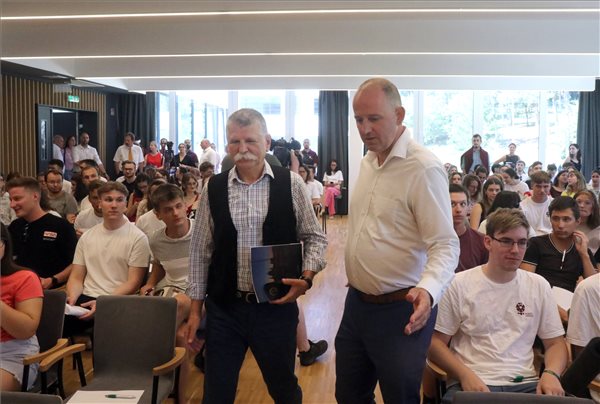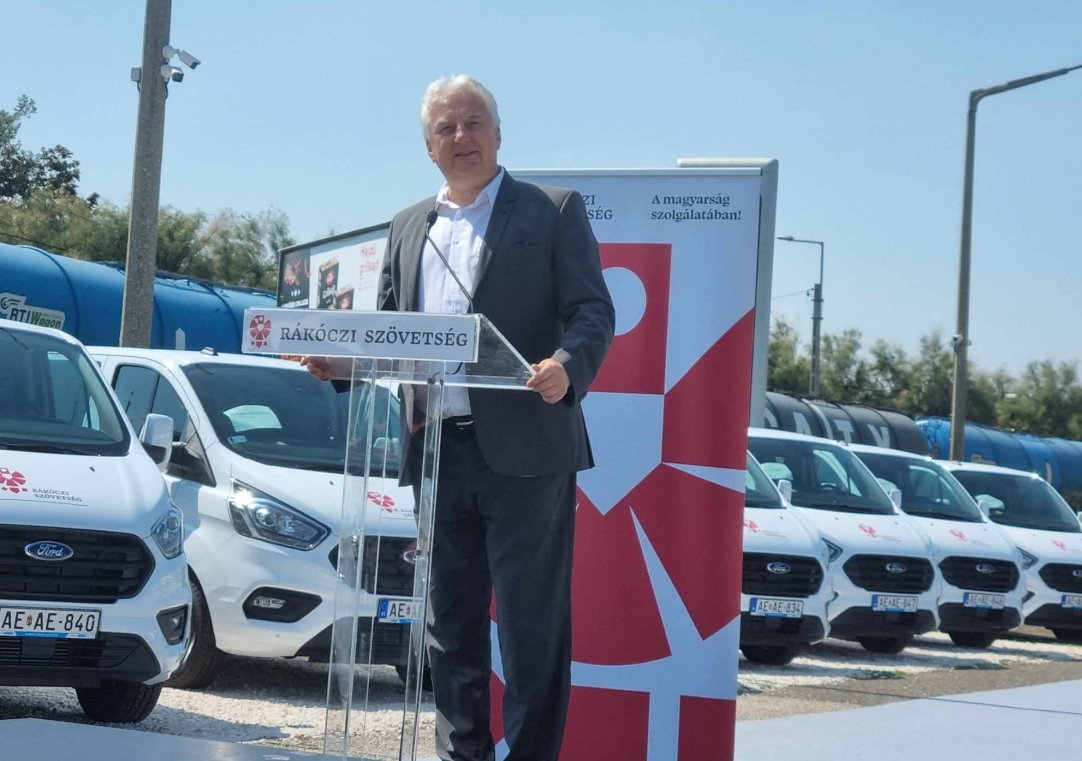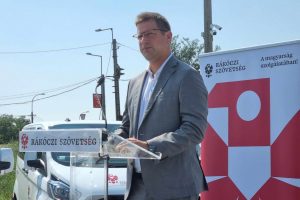
László Kövér, the Speaker of the Hungarian Parliament, also touched on the topic of the continuity of the Visegrad Four cooperation.Continue reading

The maintenance of the school network and the provision and development of Hungarian-language education are crucial for the survival of Hungarians living beyond the border, Deputy Prime Minister Zsolt Semjén said in Budapest on Monday.
Zsolt Semjén said on the occasion of the launch of 42 new school buses operated by the Rákóczi Association to help children in Transylvania (Romania) to attend Hungarian schools in cooperation with the Cluj-based School Foundation, providing support of 100,000 forints (EUR 260) per child per year.

Photo: Hungary Today
The politician said that children will be able to learn in Hungarian in 1,700 kindergartens, 1,243 primary schools, 259 secondary schools and 20 higher education institutions. Zsolt Semjén pointed out that the maintenance of the school bus network is of great help to Hungarians living in the region, thus ensuring that children can get to Hungarian schools.
The Deputy Prime Minister thanked the Rákóczi Association for coordinating the program, adding that he was confident that the children growing up would be proud Hungarians who would pass on Hungarian culture, language and Hungarian consciousness to their children, because this is what the survival of the nation means.

Photo: Hungary Today
At the event, Gergely Gulyás, Minister of the Prime Minister’s Office, also stressed that schools are the best means of preserving the identity, communities and culture of Hungarians living beyond the borders. The Minister stressed that the Government, in accordance with the provisions of the Basic Law, assumes responsibility for the fate of Hungarians living beyond the borders and supports Hungarian communities.

Gergely Gulyás. Photo: Hungary Today
The government has supported the purchase of the minibuses with HUF 500 million (EUR 1.6 million), to which the Rákóczi Association has contributed HUF 150 million (EUR 400.000) from its own resources, he said.
Hunor Kelemen, president of the Hungarian Democratic Alliance of Romania (RMDSZ), said that the Rákóczi Association’s school bus program would give 500 children living in the Hungarian minority the opportunity to attend Hungarian schools in 11 counties of Transylvania.
Csongor Csáky, President of the Rákóczi Association, said that choosing a Hungarian school means choosing a Hungarian future, and that every child from abroad who attends a Hungarian school is a guardian of the Hungarian language and culture.

Csongor Csáky. Photo: Hungary Today
He pointed out that the Rákóczi Association has always been looking for ways to slow down assimilation in the foreign regions. One of the means of doing so is the launch of a school bus network, he said.
Last September, he said, the school bus program was launched in the Highlands (Slovakia) with 16 vehicles. Surveys show that where this option is available, 30% more children are enrolled in Hungarian-language schools.

Zsolt Semlyén (C), Gergely Gulyás (4th L) and Csáky Csongor (2nd R). Photo: Hungary Today
Csongor Csáky said that the Rákóczi Association will operate 58 school buses across the border from September, with the vehicles helping more than 720 children in 48 municipalities to get to school. The cost of running the buses is HUF 231 million (EUR 600.000) per school year, which is also covered by the Hungarian state, so getting to school is not a financial burden for families or schools.
Via MTI; Featured Photo: Hungary Today